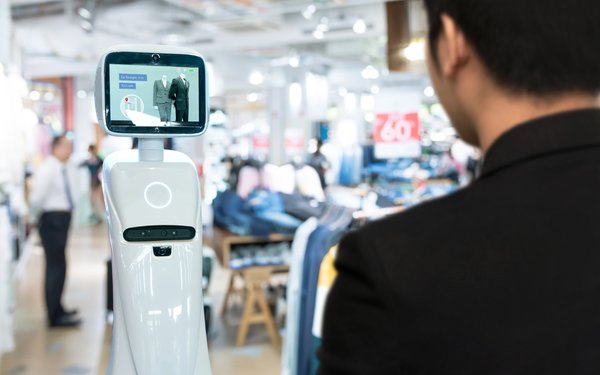The retail industry has undergone a remarkable transformation over the years, and one of the driving forces behind this evolution is Artificial Intelligence (AI). From personalized shopping recommendations to enhanced customer service, AI is reshaping the way consumers and businesses interact. In this article, we will explore how AI is revolutionizing the retail sector, offering insights into the various applications, benefits, and the future of AI in retail.
- Personalized Shopping Experiences:
AI-powered recommendation systems have become a cornerstone of the online shopping experience. Retail giants like Amazon and Netflix have leveraged AI algorithms to analyze user behavior and preferences, providing tailored product suggestions. This not only increases customer engagement but also drives higher sales and customer loyalty. AI helps retailers better understand individual shopper preferences, making their experience more relevant and enjoyable.
- Inventory Management and Supply Chain Optimization:
AI plays a crucial role in inventory management and supply chain optimization. Retailers can use predictive analytics to forecast demand accurately, reducing overstocking and understocking issues. Machine learning algorithms can analyze various factors like seasonality, weather patterns, and historical sales data to optimize inventory levels and distribution. This ensures that products are available when and where customers need them, reducing lost sales and excess inventory costs.
- Chatbots and Customer Support:
AI-powered chatbots are becoming increasingly popular in the retail sector. These virtual assistants can handle customer inquiries, process orders, and provide real-time support. Chatbots are available 24/7, reducing response times and improving customer service. Additionally, they can handle a multitude of customer inquiries simultaneously, ensuring that customers receive quick and efficient assistance.
- Visual Search and Augmented Reality:
AI has also enhanced the in-store and online shopping experience through visual search and augmented reality (AR). Customers can take pictures of items they like, and AI can find similar products in a retailer’s inventory. AR applications allow customers to “try on” products virtually, such as clothing or furniture, before making a purchase. This bridges the gap between the physical and online shopping experience, helping customers make more informed decisions.
- Fraud Detection and Security:
AI is a powerful tool for enhancing security in the retail sector. It can identify suspicious activities, detect fraudulent transactions, and protect customer data. Machine learning algorithms can analyze massive amounts of data to spot unusual patterns or behaviors, helping to prevent fraud and safeguard customer information.
- Price Optimization:
AI-driven price optimization tools help retailers set competitive and dynamic pricing strategies. These algorithms analyze competitors’ prices, market demand, and historical sales data to adjust prices in real-time. This ensures that retailers remain competitive and maximize their profitability.
- The Future of AI in Retail:
As technology continues to advance, the role of AI in retail will only grow. Retailers will increasingly rely on AI to gain a deeper understanding of customer behavior, streamline operations, and offer innovative shopping experiences. The integration of AI and the Internet of Things (IoT) will lead to smarter, more connected stores. Customers can expect increasingly personalized experiences both online and in physical retail spaces.



